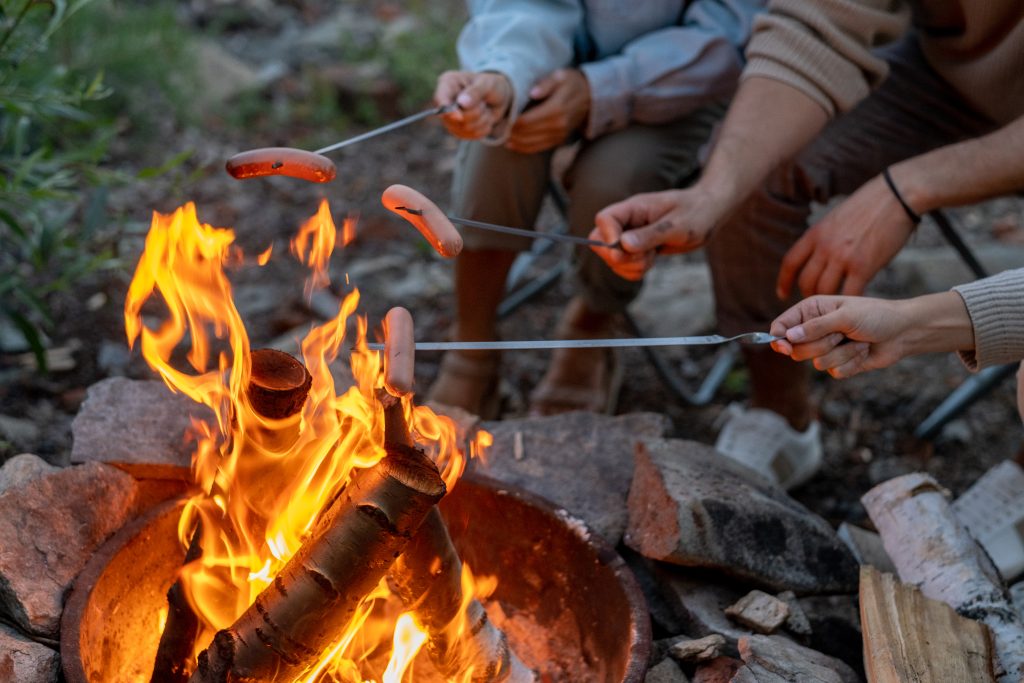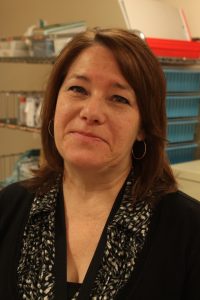
Tips to minimize your risk of burns outdoors
Warm weather activities bring burn risk
Every spring and summer, Hamilton Health Sciences’ Hamilton General Hospital sees a number of trauma cases due to risky behaviour around campfires, brush fires and barbecues. Lightning can also a source of summer burn injuries.

Natalie Hanna, Burn Clinician, Hamilton Health Sciences
Burn clinician at the HGH burn unit, Natalie Hanna, says, “these incidents can develop into serious situations, requiring the patient to be admitted to the burn unit for specialized burn care.” She says the severity of an injury is determined by the temperature of the source and how long the patient is exposed to it. Damage to the skin can range from mild superficial redness requiring only minor treatment to deep, full thickness injury involving muscle and bone damage. Severe injuries can require months of treatment in the burn unit.
Roughly 15% of patients admitted to Hamilton Health Sciences for burns were injured around campfires or barbecues.
Hamilton Fire Department spokesperson, Claudio Mostacci, says that both of these sources of danger tend to spike in spring and summer. He says barbecue fires are particularly common at the beginning of the season because damage that occurred over winter can allow propane or gas to leak. He says it’s important to check all connections before using your barbecue.
Mostacci adds that alcohol and drugs can increase your risk of injury around a fire. He urges everyone to, “be aware of alcohol and anything that might cause you to lose your balance and fall.” Even if you aren’t impaired, he says it’s important to keep your distance from flames because your clothes can catch fire quickly.
To stay safe this summer, make sure you have a working smoke detector on every floor of your house and a carbon monoxide detector on all floors with bedrooms. Remember the following tips to minimize your risk of fire and burns outdoors:
Brush fires and campfires:
- Never add an accelerant (like gasoline or alcohol) to a fire
- Never use accelerant to start a fire
- Keep all flammable items far away from any flame, especially clothing
- Don’t stand over a fire because the carbon monoxide can make you dizzy and lose your balance
- Keep your distance from a fire if you’ve been drinking or using drugs
- If your clothing catches fire, stop, drop and roll
Barbecues:
- Clean your barbecue lines annually
- Make sure all connections are secure
- Always light your barbecue with the lid open
- Never leave the grill unattended
- If your barbecue catches fire, don’t try to put it out. Call 9-1-1
- If your clothing catches fire, stop, drop and roll
Lightning:
- Go indoors if possible
- Stay away from windows and doors
- Stay off computers and keep the TV turned off
- If your clothing catches fire, stop, drop and roll
Even a small burn can become very serious if it gets infected. Follow these steps from Dr. Chris Sulowski, deputy chief of McMaster Children’s Hospital’s Emergency Department to treat your burn the RIGHT way.
How to treat a burn with Dr. Chris Sulowski
Steps:
- Remove skin from hot surface immediately. If you’ve been burned by hot splashing liquid, remove any wet clothing immediately.
- Run cool tap water over burn area for at least 20 minutes to stop burning.
- Do NOT apply ice, butter, milk, oil, saliva, Vaseline, or other liquid, ointment or gel onto the burn area.
- Check the burn. If it:
- appears to be deep
- is starting to bubble up
- is causing unmanageable pain
- is in a particularly sensitive area (face, hands, feet, groin)
- covers a large area of the body (>5% body surface area)
- surrounds a body part (like a wrist)
Then a visit to the emergency department is in order. First, cover the burn with a clean cloth.
5. If the burn appears to be minor, cover it with a clean cloth or bandage and visit a doctor within three days.
